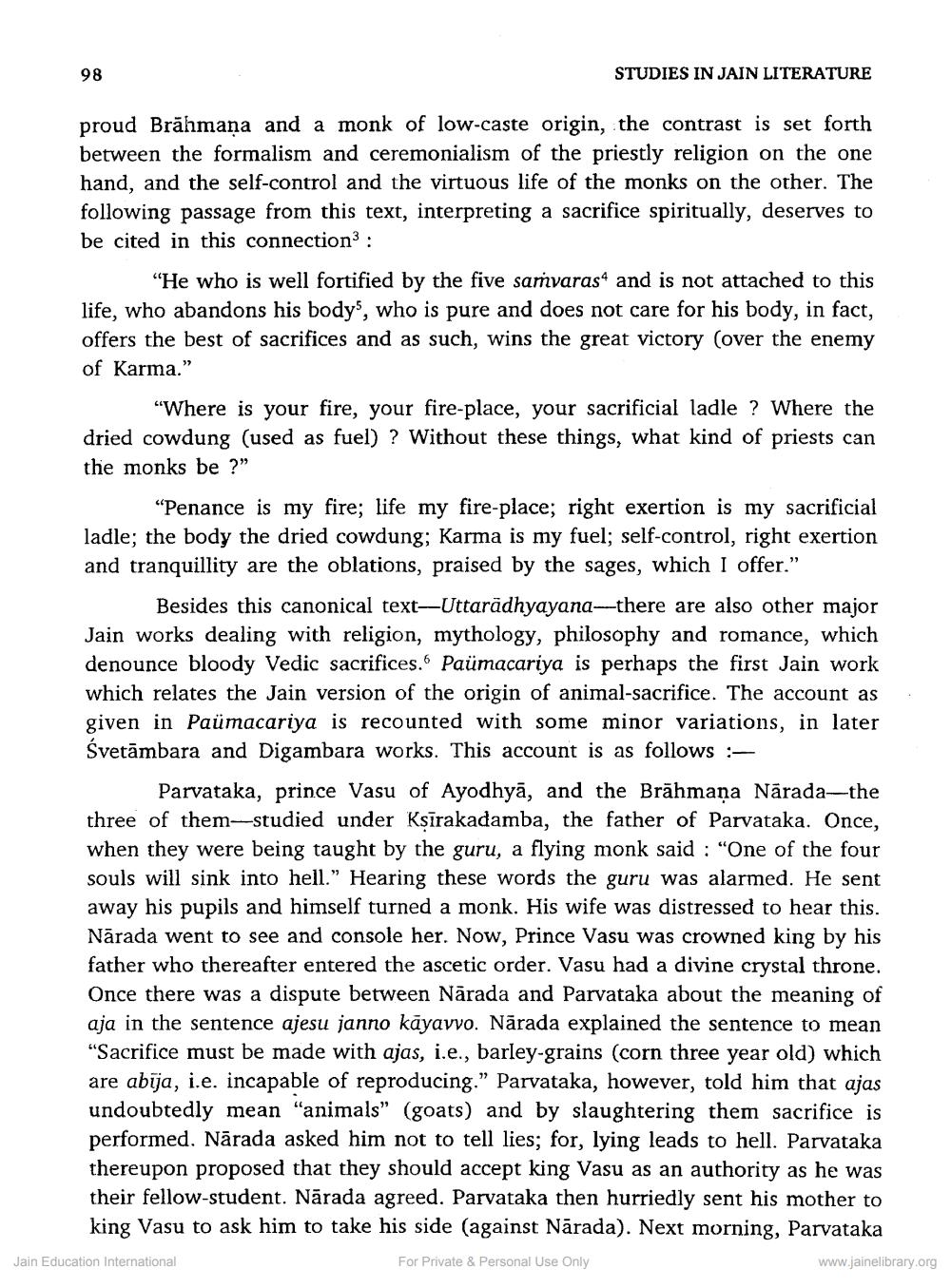________________ 98 STUDIES IN JAIN LITERATURE proud Brahmana and a monk of low-caste origin, the contrast is set forth between the formalism and ceremonialism of the priestly religion on the one hand, and the self-control and the virtuous life of the monks on the other. The following passage from this text, interpreting a sacrifice spiritually, deserves to be cited in this connections : "He who is well fortified by the five samvaras4 and is not attached to this life, who abandons his bodys, who is pure and does not care for his body, in fact, offers the best of sacrifices and as such, wins the great victory (over the enemy of Karma." "Where is your fire, your fire-place, your sacrificial ladle ? Where the dried cowdung (used as fuel) ? Without these things, what kind of priests can the monks be ?" "Penance is my fire; life my fire-place; right exertion is my sacrificial ladle; the body the dried cowdung; Karma is my fuel; self-control, right exertion and tranquillity are the oblations, praised by the sages, which I offer." Besides this canonical text-Uttaradhyayana--there are also other major Jain works dealing with religion, mythology, philosophy and romance, which denounce bloody Vedic sacrifices. Paumacariya is perhaps the first Jain work which relates the Jain version of the origin of animal-sacrifice. The account as given in Paumacariya is recounted with some minor variations, in later Svetambara and Digambara works. This account is as follows : Parvataka, prince Vasu of Ayodhya, and the Brahmana Narada---the three of them-studied under Ksirakadamba, the father of Parvataka. Once, when they were being taught by the guru, a flying monk said : "One of the four souls will sink into hell." Hearing these words the guru was alarmed. He sent away his pupils and himself turned a monk. His wife was distressed to hear this. Narada went to see and console her. Now, Prince Vasu was crowned king by his father who thereafter entered the ascetic order. Vasu had a divine crystal throne. Once there was a dispute between Narada and Parvataka about the meaning of aja in the sentence ajesu janno kayavvo. Narada explained the sentence to mean "Sacrifice must be made with ajas, i.e., barley-grains (corn three year old) which are abija, i.e. incapable of reproducing." Parvataka, however, told him that ajas undoubtedly mean "animals" (goats) and by slaughtering them sacrifice is performed. Narada asked him not to tell lies; for, lying leads to hell. Parvataka thereupon proposed that they should accept king Vasu as an authority as he was their fellow-student. Narada agreed. Parvataka then hurriedly sent his mother to king Vasu to ask him to take his side (against Narada). Next morning, Parvataka Jain Education International For Private & Personal Use Only www.jainelibrary.org




